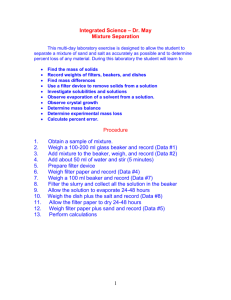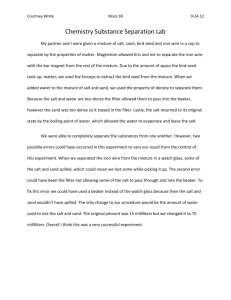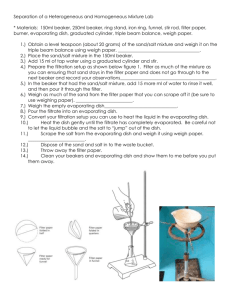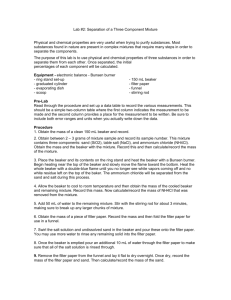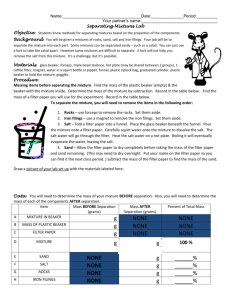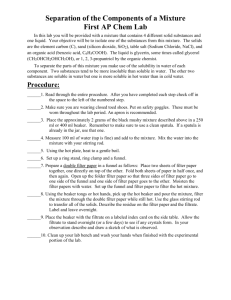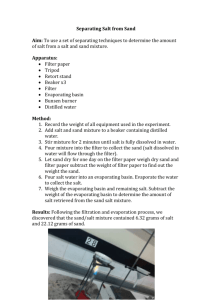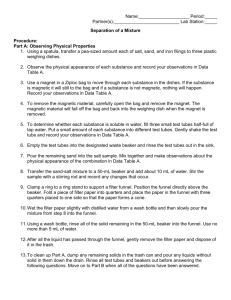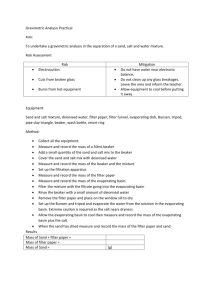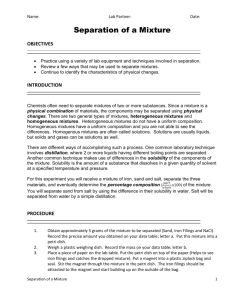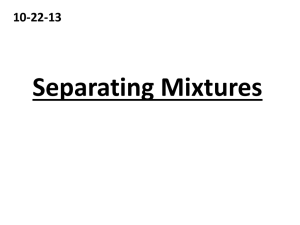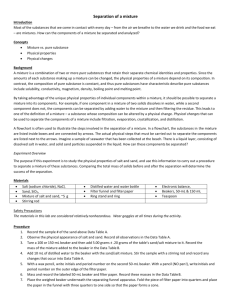Lab: Separation of a Mixture
advertisement
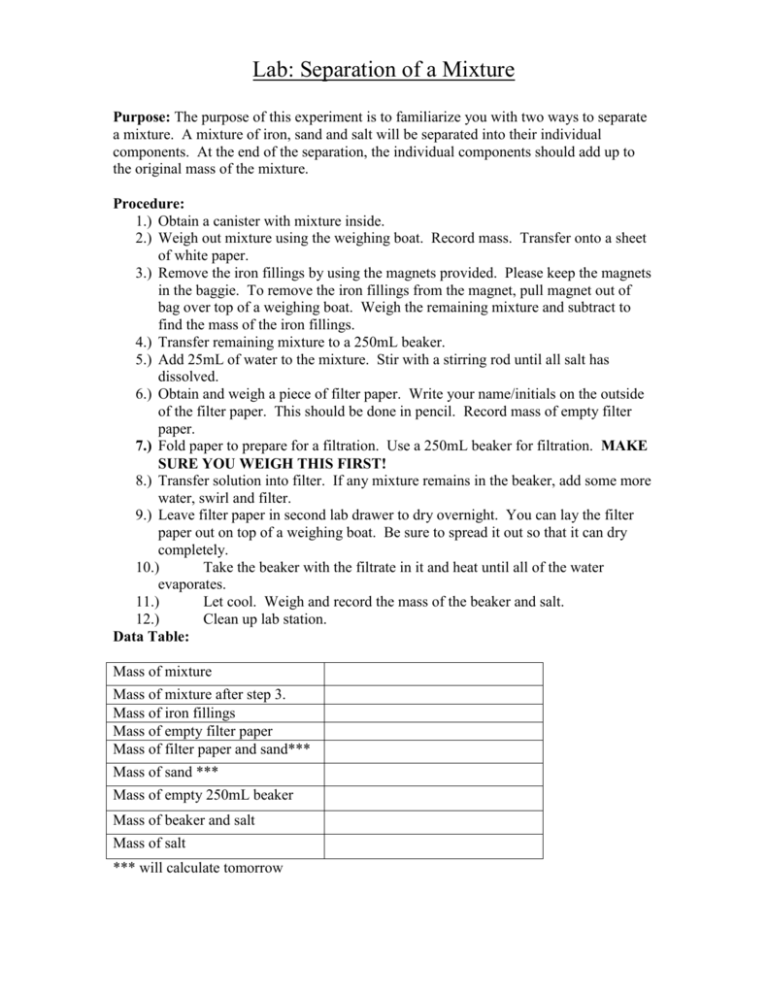
Lab: Separation of a Mixture Purpose: The purpose of this experiment is to familiarize you with two ways to separate a mixture. A mixture of iron, sand and salt will be separated into their individual components. At the end of the separation, the individual components should add up to the original mass of the mixture. Procedure: 1.) Obtain a canister with mixture inside. 2.) Weigh out mixture using the weighing boat. Record mass. Transfer onto a sheet of white paper. 3.) Remove the iron fillings by using the magnets provided. Please keep the magnets in the baggie. To remove the iron fillings from the magnet, pull magnet out of bag over top of a weighing boat. Weigh the remaining mixture and subtract to find the mass of the iron fillings. 4.) Transfer remaining mixture to a 250mL beaker. 5.) Add 25mL of water to the mixture. Stir with a stirring rod until all salt has dissolved. 6.) Obtain and weigh a piece of filter paper. Write your name/initials on the outside of the filter paper. This should be done in pencil. Record mass of empty filter paper. 7.) Fold paper to prepare for a filtration. Use a 250mL beaker for filtration. MAKE SURE YOU WEIGH THIS FIRST! 8.) Transfer solution into filter. If any mixture remains in the beaker, add some more water, swirl and filter. 9.) Leave filter paper in second lab drawer to dry overnight. You can lay the filter paper out on top of a weighing boat. Be sure to spread it out so that it can dry completely. 10.) Take the beaker with the filtrate in it and heat until all of the water evaporates. 11.) Let cool. Weigh and record the mass of the beaker and salt. 12.) Clean up lab station. Data Table: Mass of mixture Mass of mixture after step 3. Mass of iron fillings Mass of empty filter paper Mass of filter paper and sand*** Mass of sand *** Mass of empty 250mL beaker Mass of beaker and salt Mass of salt *** will calculate tomorrow Questions: 1.) Calculate the % composition of the iron, sand and salt. Show all work. % iron = ______ % sand = ____ % salt = ______ Total %______________ 2.) Explain why the total percentages might add up to more than 100% assuming the balance was working properly at all times. 3.) Explain why the total percentages might add up to less than 100% assuming the balance was working properly at all times. 4.) Identify one heterogeneous mixture that occurred during the separation. 5.) Identify one homogeneous mixture that occurred during the separation. Conclusion:
